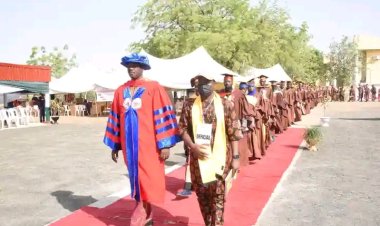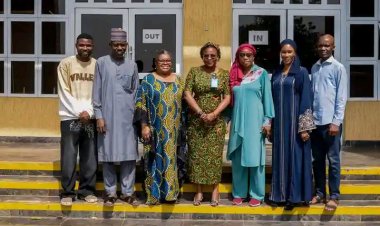Student Loan Bill Scales Second Reading at National Assembly
The Nigerian House of Representatives has advanced the Student Loan Bill to the Second Reading, paving the way for the establishment of the Nigerian Education Loan Fund. This legislative move aims to provide loans for higher education, vocational training, and skills acquisition, offering hope to vulnerable Nigerians aspiring for education.

The bill, titled "A Bill for an Act to Repeal the Students Loans (Access to Higher Education) Act, 2023 and Enact the Student Loans (Access to Higher Education) Bill, 2004 to Establish the Nigerian Education Loan Fund," was presented on the floor of the House by the House Leader, Julius Ihonvbere. The Speaker of the House, Abbas Tajudeen, read President Tinubu’s letter, urging lawmakers to act on the proposed legislation, emphasizing its importance in addressing challenges related to the management structure of the Nigerian Education Loan Fund and applicant eligibility requirements.
Leading the debate, Ihonvbere highlighted the pressing need for reform in the education sector, citing the difficulty many young Nigerians face in accessing higher education due to economic constraints. He underscored the significance of the bill in clarifying operational procedures, repayment methods, and the sustainability of the student loan scheme.
READ ALSO:UTME Candidates Encounter Registration Challenges Due to SIM Card Issues
Despite reservations expressed by some stakeholders, including the National Association of Nigerian Students (NANS) and the Academic Staff Union of Universities (ASUU), proponents argue that the bill represents a crucial step in making education more affordable and accessible to all Nigerians. President Tinubu's administration has expressed confidence in the bill's potential to address the educational needs of the country's youth.
The Student Loan (Access to Higher Education) Act 2023, signed into law by President Tinubu on June 12, 2023, laid the foundation for the student loan scheme. However, its implementation has faced delays, prompting concerns among stakeholders about its effectiveness.
As the bill progresses through the legislative process, stakeholders await further deliberations and actions by the National Assembly, hopeful that it will ultimately contribute to transforming the educational landscape and empowering the nation's youth.





